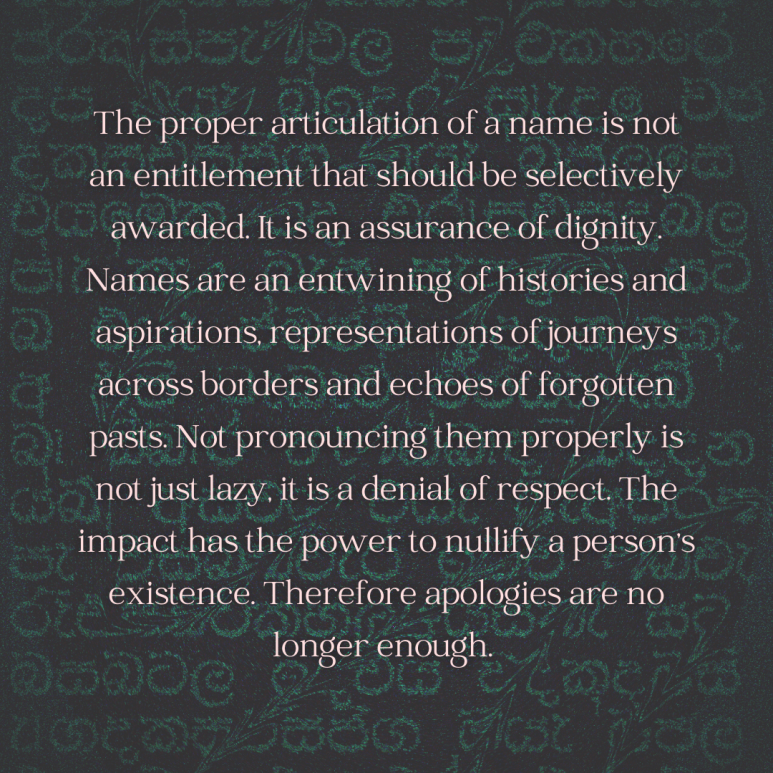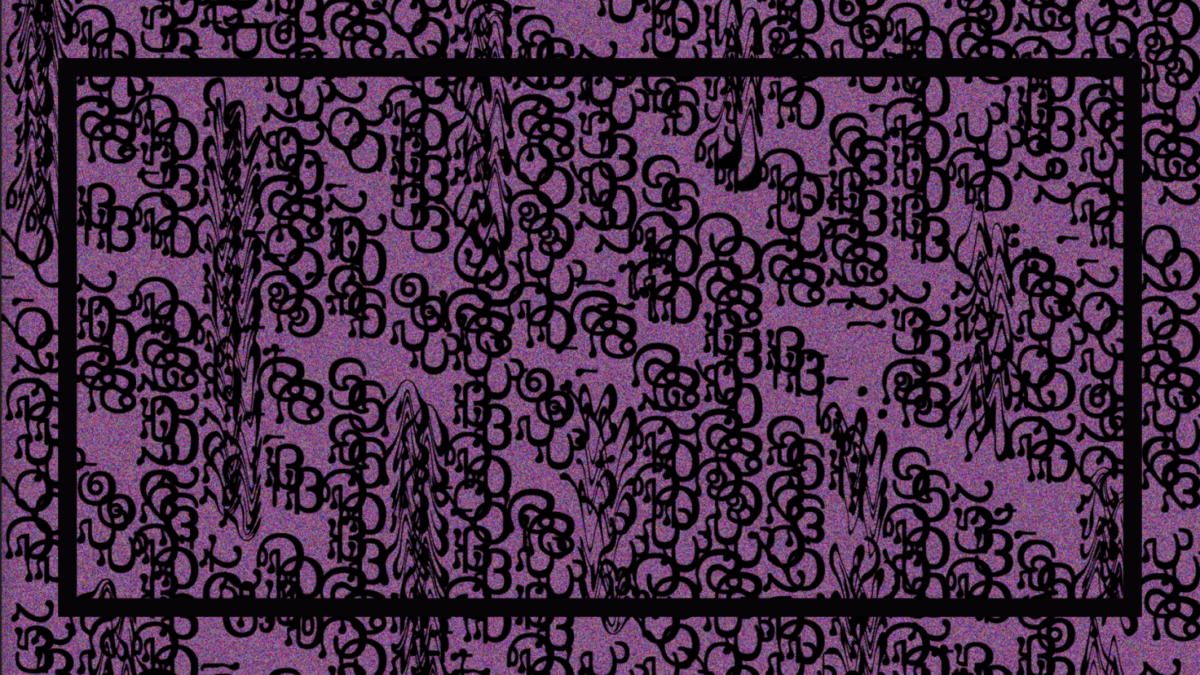The recent election has presented a vastly more ethnically diverse Parliament, mostly from the Labor side of politics. The ALP, faithful to tradition, made all new members sign the caucus book. New MPs Zeneta Mascherenas and Cassandra Fernando shook hands with the new Prime Minister but interestingly, while signing, both apologised.
Zeneta, for having a long name, and Cassandra, for having a long signature. Once again, because of her name.
For a moment, I was furious. Because at that moment I saw myself. I saw myself, being sorry for having a long name, letting people put whatever spin they like on it, conceding, “it’s okay, I answer to most things.” For people of colour, before someone even reaches an attempt of pronouncing their name correctly, it feels as though a judgement has been made: of inherent impossibility.
The proper articulation of a name is not an entitlement that should be selectively awarded. It is an assurance of dignity. Names are an entwining of histories and aspirations, representations of journeys across borders and echoes of forgotten pasts. Not pronouncing them properly is not just lazy, it’s a denial of respect. The impact has the power to nullify a person’s existence. Therefore apologies are no longer enough.
I am a Sri Lankan, of Sinhalese descent, and naming practices tend to be an elaborate decadence between higher beings and mere mortals. A birth chart is drawn up by an astrologer, based on ancient knowledge of the movement of stars. The chart represents planet placement in relation to the star signs at the time of a child’s birth. In accordance with this, the astrologer bestows the parents a letter from the Sinhalese alphabet, and then a list of names starting with that letter. This practice has continued for generations. Reading the stars and being at the mercy of them to bring goodwill to the child every time their name is spoken.
A name is a portrait. For the eyes to see, for the ears to hear. It is a record of our outer selves that connects integrally with our inner selves. For most colonised people, names are a praxis of a history deprived and a hope that a future may be their own. Sinhalese sought to name their children British names during the colonial era and in the British Dominion as a guarantor of upward social mobility. It was a trick that never failed to deliver. In the modern-day, the fact that names like mine are spoken at all, despite every attempt to make them devoid of any significance, is a testament to the survival of an entire people. But more importantly, their liberation.
Colonialism “thingifies”, meaning it dehumanises. It turns the colonised into commodities, for exploitation on every single level, violating every aspect of their humanity. That is why it was so important to silence their names. To destroy the one thing that each and every one of us call our own, and ultimately the only thing we may take to our grave.
Renaming children with their own dialectics, using our practices, was a process of re-humanisation that built back the cultural infrastructures lost to colonial violence. Culture alone was not the only revolutionary force. In the face of colonisation, the existence of these nations was not just proved by culture, but by people’s resistance against occupation. So naming their children, speaking the names of their fathers, put colonialism to shame by exhibiting cultural treasures right under the nose of the empire.
Ratnayake Mudiyanselage Ranasinghe was my grandfather’s name. He chose to give his given name as a surname to his children. Ranasinghe, meaning an unfaced warrior in the face of battle. I don’t know much about the man he was, but I know he lived up to the name he gave me. A staunch anti-colonialist and active member of resistance politics, he devoted his life to unionism and public healthcare. 518 years of colonisation in Sri Lanka, and his name survived his ancestors and it survived him.
But it won’t survive his descendants. Because in a new country, we were made to feel that his name was a burden. Blank stares during roll call. Long glares, and the pre-emptive “Oh I’m going to get this wrong,” made us feel like an inconvenience. So, on a Wednesday evening in a Perth government bureau, it cost us $50 to change our name. Only now do I realise it cost me much more. Because of course the way to love anything is to realise that it might be lost forever.
James Baldwin explained this phenomenon best: “They come through Ellis Island, where Giorgio becomes Joe, Pappavasiliu becomes Palmer, Evangelos becomes Evans, Goldsmith becomes Smith or Gold, and Avakian becomes King.” This is an intrinsic part of the immigrant experience. Changing our names, and shortening them, is a part of survival. Changing the very thing that uniquely defines you, to live a life that is convenient for the white man. For me, it feels like a tax that we cannot escape. Thank you for letting us be here, we will keep our heads down. I will smile every time you call me a name that is not mine, as you diminish the forces of history that secured my very being today.
It is a tax for existence in a country that was never intended to be yours. A way to show that you know how to keep your distance and stay in your place. The price paid is not just that of the plane ticket, our very being here is at the expense of our eternal ties to our cultures. So, it is no surprise when Baldwin says “at the midnight hour, the lost identity aches.”
As a child of diaspora and an immigrant, it is easy to let the domineering culture convince you the most important contract is between yourself and your loyalty to this country. That you must renew this allegiance every day. I no longer believe this. The most important bond is between yourself and your community. But I don’t know how any relationship with that community can be formed if it refuses to speak your name as you, your parents and your language intend it.
Immigrants and people of colour in this country, live lives that are “up-rooted, re-rooted and rootless.” Our names remain portals to motherlands that some of us never got to know. So, the onus is on all of us, because each time we speak a name correctly, we make more of an effort, we deal a blow to the imperial flags that still fly in the collective unconscious.
Originally published in Woroni Vol. 72 Issue 4 ‘Alien’
Think your name would look good in print? Woroni is always open for submissions. Email write@woroni.com.au with a pitch or draft. You can find more info on submitting here.

We acknowledge the Ngunnawal and Ngambri people, who are the Traditional Custodians of the land on which Woroni, Woroni Radio and Woroni TV are created, edited, published, printed and distributed. We pay our respects to Elders past and present. We acknowledge that the name Woroni was taken from the Wadi Wadi Nation without permission, and we are striving to do better for future reconciliation.
